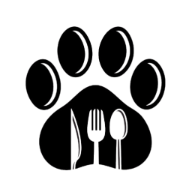No, French Bulldogs should not eat monk fruit. While it’s non-toxic, monk fruit does not provide any nutritional benefits for them. Stick to safer, dog-friendly treats to keep your pup healthy and happy.
Key Takeaways
- French Bulldogs shouldn't eat monk fruit.
- Monk fruit has no nutritional benefits for dogs.
- High-quality dog food is essential for health.
- Consider treats with high protein content.
- Choose low calorie options for weight management.
French Bulldogs are known for their unique personalities and charm, but when it comes to what human food can French Bulldog eat, it's important to be cautious. These little companions thrive on a balanced diet, but some foods can be risky.
- According to Wikipedia, monk fruit is non-toxic to dogs, but it offers no nutritional value for French Bulldogs, making it a poor choice for treats.
- As noted by Wikipedia, French Bulldogs have specific dietary needs, preferring high-quality dog food tailored to their size and activity level for optimal health.
Is Monk Fruit Safe for French Bulldogs?
No, French Bulldogs should not eat monk fruit. While it is non-toxic, it lacks nutritional value for them. Instead, focus on healthier, dog-friendly treats to support their well-being. Remember, do French Bulldog have food allergies, so always monitor what they consume.
| Nutrient | Value | Benefits |
|---|---|---|
| Fiber | 0g | Helps digestion |
| Vitamins | N/A | No essential vitamins |
| Antioxidants | N/A | No significant antioxidants |
| Calories | 0 | No energy value |
| Hydration | 0% | No hydration benefits |
While monk fruit poses no choking hazards or toxicity, it offers no nutritional benefits. Always exercise caution with treats, as some may cause allergies or digestive issues in French Bulldogs.
For a balanced diet, consider feeding your French Bulldog high-quality options like beef or chicken. These provide essential nutrients to keep them healthy and happy.
A veterinarian advises, "Exercise caution with treats; prioritize your French Bulldog's health."
French Bulldog Habits and Dietary Needs
French Bulldogs have specific food preferences and habits. They generally don't enjoy monk fruit, as it lacks flavor and nutritional value for them. Instead, opt for dog-friendly treats.
French Bulldogs typically eat two to three times a day, depending on their age and activity level. This feeding schedule helps maintain their energy levels and prevents overeating.
To ensure your French Bulldog gets the nutrients they need, consider high-quality options such as high protein or low calorie dog food. These types of food support their overall health and vitality.
French Bulldog Food Recipes: Homemade and Raw Options
Cooking for your French Bulldog can be a rewarding experience, ensuring they get nutritious and safe meals. When considering homemade food for french bulldog, focus on ingredients like lean meats, vegetables, and grains. Avoid monk fruit as it offers no benefits.
For easy options, consider using chunk or pate forms, which can be mixed with other healthy ingredients to create a delicious meal your pup will love.
Always remember to consult your vet for tailored dietary advice and ensure any homemade recipes meet your French Bulldog's specific nutritional needs.
French Bulldog Food Chart
A food chart is essential for a French Bulldog to ensure they receive a balanced diet tailored to their specific needs. Ever wondered which food is best for french bulldog? Monk fruit is not part of this chart due to its lack of nutritional value.
| Food Type | Benefits | Frequency |
|---|---|---|
| High-Quality Dog Food | Provides essential nutrients | 2-3 times daily |
| Lean Meats (Chicken, Beef) | High in protein | As a treat or mixed |
| Vegetables (Carrots, Peas) | Rich in vitamins | Occasional snacks |
| Grains (Brown Rice, Oats) | Good source of energy | Mixed into meals |
| Dog-Friendly Treats | Supports training and bonding | As needed, in moderation |
Best Food for French Bulldog: What to Choose?
Choosing the right food for your furry friend, the French Bulldog, is essential for their health and happiness. You might be wondering which food is best for french bulldog? Monk fruit isn't part of the answer, as it offers no nutritional value. Instead, focus on high-quality dog foods.
For the best food options, consider brands like Wellness, The Honest Kitchen, and Merrick. These brands provide balanced nutrition specifically designed for dogs, ensuring your French Bulldog stays healthy and active.
Feeding Your French Bulldog Puppy
French Bulldog puppies have specific dietary needs that are essential for their growth and development. It's important to ask yourself, how much food should I feed my french bulldog puppy? Monk fruit is not suitable for puppies as it offers no nutritional benefits. Stick to high-quality foods instead.
For your French Bulldog puppy, consider feeding them pate or chunk forms of dog food. These options are not only tasty but also easy for puppies to chew. Always consult with your veterinarian for tailored advice regarding your puppy's diet.
Best Food for Pregnant French Bulldog
During pregnancy, a French Bulldog requires a specific diet to support both her health and the development of her puppies. The Best food for pregnant french bulldog includes high-quality, nutrient-dense options that provide essential vitamins and minerals. Avoid monk fruit, as it offers no nutritional benefits.
Consider incorporating foods that promote digestive health and skin and coat health. These options can help ensure your pregnant pup stays healthy and energetic throughout her pregnancy.
Safe and Unsafe Human Foods for French Bulldogs
When it comes to feeding your French Bulldog, it's crucial to know which foods are safe and which to avoid. Ever wondered which food is best for french bulldog? Here's a quick guide to help you make informed choices for your furry friend.
| Dog Breed | Safe Foods | Unsafe Foods |
|---|---|---|
| French Bulldog | Carrots, Blueberries, Chicken, Sweet Potatoes, Green Beans | Chocolate, Grapes, Onions, Garlic, Monk Fruit |
| Labrador | Apples, Bananas, Lean Beef, Peas, Pumpkin | Avocado, Macadamia Nuts, Alcohol, Xylitol, Caffeine |
| Beagle | Rice, Fish, Peanuts, Broccoli, Spinach | Nutmeg, Cherries, Rhubarb, Raisins, Fatty Foods |
| Poodle | Eggs, Zucchini, Corn, Cauliflower, Blueberries | Pits from Fruits, Processed Foods, Dairy, Sugary Treats, Bones |
| Bulldog | Oatmeal, Cottage Cheese, Watermelon, Turkey, Celery | Fried Foods, High-Sugar Foods, Raw Dough, Certain Nuts, Moldy Foods |
Also Read: Can French Bulldog Eat Freeze Dried Strawberries Safely? | Can Golden Retrievers Dog Eat Scrapple? Safety and Feeding Tips | What’s the Best Dog Food for Pellet’s Health and Happiness? | Can Golden Retrievers Dog Eat Guar Gum? Safety, Benefits, and Tips
French Bulldog Eating Habits
French Bulldogs are known for their unique eating habits. They typically eat two to three times a day, ensuring they maintain their energy levels and prevent overeating. Ever wondered how many times does a french bulldog eat? This feeding schedule is crucial for their health.
Many owners may also ask, Why do french bulldogs eat their own poop? This behavior, known as coprophagia, can stem from various reasons, including nutritional deficiencies or instinctual behavior. It’s essential to keep an eye on your furry friend to ensure they’re eating a balanced diet.
French Bulldogs tend to enjoy flavorful options like pate and chunk forms of dog food, which are not only tasty but also easy for them to chew. Providing a variety of flavors can help keep them engaged and excited about mealtime.
French Bulldog Food Allergies: Signs and Solutions
Food allergies can be a serious concern for French Bulldogs. Many owners often wonder, do French Bulldog have food allergies? Symptoms may include itching, digestive issues, or skin irritations, making it essential to monitor their diet closely.
If your French Bulldog shows signs of food allergies, such as vomiting or excessive scratching, consult your vet. Solutions include switching to specialized diets like Allergy Relief or Digestive Health formulations that cater to their unique needs.
How Long Can a French Bulldog Go Without Eating?
Ever wondered how many times does a french bulldog eat? Generally, a French Bulldog can go without food for about 24 to 48 hours, depending on their health and age. However, it's essential to monitor their eating habits closely.
After fasting, it's not advisable to give your French Bulldog monk fruit, as it offers no nutritional benefits. Instead, consider tasty options like pate or chunk forms to ease them back into eating.
Pros & Cons of Feeding Monk Fruit to French Bulldogs
When considering monk fruit for your French Bulldog, it's essential to weigh the pros and cons. While it may seem appealing, understanding its effects on your furry friend is crucial.
| Pros | Cons |
|---|---|
| Non-toxic to dogs | Lacks nutritional value |
| Natural sweetener | May cause digestive upset in some dogs |
| Low in calories | No health benefits for French Bulldogs |
| Does not contain harmful ingredients | Not a suitable treat option |
| Can be used in moderation | Potential allergen for some dogs |
How to Safely Feed Monk Fruit to French Bulldog
Wondering about the best way to introduce monk fruit to your French Bulldog? While monk fruit is non-toxic, it lacks any nutritional benefits. It's crucial to focus on how much food does a french bulldog need and ensure they’re getting a balanced diet instead. Here’s a step-by-step guide to safely navigate this process.
- Consult Your Vet
- Choose Quality Treats
- Start with Small Amounts
- Observe Your Dog
- Monitor for Reactions
For a healthier alternative, consider feeding your French Bulldog well-balanced foods like Wellness or Merrick. These options provide the essential nutrients your furry friend requires for a happy and healthy life.
Alternative Safe Foods for French Bulldogs
Ever wondered what safe and nutritious alternatives you can offer your French Bulldog? There are plenty of dog-friendly foods that provide essential nutrients and keep your pup happy. Here are some great choices:
| Alternative Safe Food | Nutritional Value | Benefits |
|---|---|---|
| Carrots | High in fiber | Supports digestion and promotes healthy eyesight. |
| Blueberries | Low in calories | Rich in antioxidants, aiding in overall health. |
| Chicken | High in protein | Promotes muscle growth and provides energy. |
These foods can enhance your French Bulldog's diet while ensuring they receive the right nutrients. Always consult your veterinarian for personalized advice on your pup's dietary needs!
Homemade vs. Store-Bought French Bulldog Treats
Choosing between homemade and store-bought treats for your French Bulldog can be a tough decision. While homemade treats allow you to control ingredients and cater to your dog's specific dietary needs, store-bought options often provide convenience and tailored nutrition. Consider your pup's preferences and health requirements when making your choice.
| Homemade Treats | Store-Bought Treats | Which One is Best? |
|---|---|---|
| Customizable ingredients; you know what’s in them. | Convenient and often formulated for specific health needs. | Depends on your dog's dietary requirements. |
| Can use fresh, high-quality ingredients. | Available in various flavors and textures. | Store-bought may be better for specific diets. |
| Requires preparation time. | Ready to serve, great for on-the-go. | Consider lifestyle and convenience. |
Both homemade and store-bought treats can be great options for your French Bulldog. If you're looking for specific diets, such as a pregnancy diet, weight loss, or immunity boost, store-bought options like Wellness and The Honest Kitchen might be more beneficial.
FAQs
What are common french bulldog habits related to eating?
French Bulldogs are known for their selective eating habits. They often prefer flavorful foods and can be picky about their diet. Offering high protein options can help entice them to eat.
What are some French Bulldog food recipes for a healthy diet?
Healthy recipes for French Bulldogs often include lean meats, vegetables, and grains. For example, a mix of chicken and carrots is nutritious. Consider adding low calorie options to maintain a healthy weight.
Where can I find a french bulldog food chart for proper nutrition?
You can find a food chart for French Bulldogs in vet offices or online resources. It’s essential to refer to these charts to ensure a balanced diet, including discount options for budget-friendly choices.
Is raw food for french bulldogs a good option?
Raw food can be beneficial but should be approached cautiously. Consult your vet before starting a raw diet to ensure it meets your dog's nutritional needs. Look for digestive health options if you decide to go raw.
How long to feed french bulldog puppy food before switching to adult food?
Typically, you can transition from puppy food to adult food around 12 months of age. Consult your vet for specific advice tailored to your French Bulldog's growth and health.
How much food does a french bulldog need daily?
A French Bulldog generally needs about 1 to 1.5 cups of high-quality dog food daily, divided into two or three meals. Adjust portions based on their activity level and weight to maintain health.
How many times does a french bulldog eat in a day?
Most French Bulldogs eat two to three times a day. This feeding schedule helps manage their energy levels and prevents overeating, which is crucial for their health.
Why do french bulldogs eat their own poop?
Coprophagia, or eating their own poop, can occur due to nutritional deficiencies or instinctual behavior. It's important to monitor their diet and consult a vet if this behavior persists.
Final Thoughts
In summary, French Bulldogs should not consume monk fruit as it is non-toxic but offers no nutritional benefits. Opt for healthier, dog-friendly treats to ensure their well-being.
Recap: No, monk fruit is not safe for your French Bulldog. Always prioritize their health and choose appropriate snacks instead. For high-quality dog food options and treats, check out these discount offers to keep your pup happy and healthy.
Disclaimer: This blog is vet-approved and carefully researched by our team of veterinarians and pet experts. However, every pet is different and may react in its own way to food, treats, products, or treatments. Always consult a vet before trying anything new for your pet. For more information, please refer to our disclaimer page.














